
Find Help
More Items From Ergsy search
-

Are defined contribution pensions protected if the provider goes bust?
Relevance: 100%
-
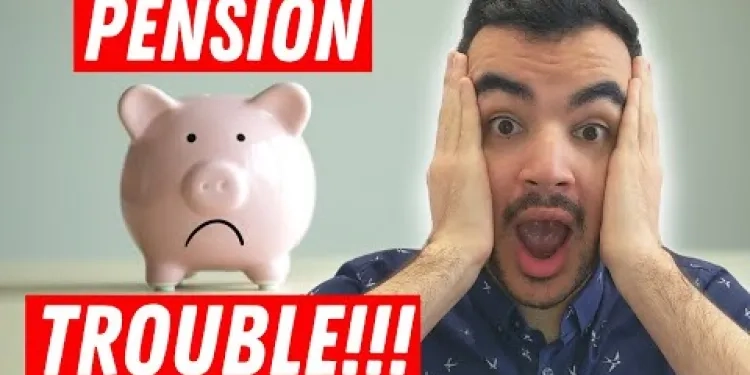
What Happens When Pensions Go Bust! | Pension System Collapse UK
Relevance: 64%
-

What is a defined contribution pension scheme?
Relevance: 64%
-

Why do pension funds go bust?
Relevance: 58%
-

What is a defined benefit pension scheme?
Relevance: 51%
-
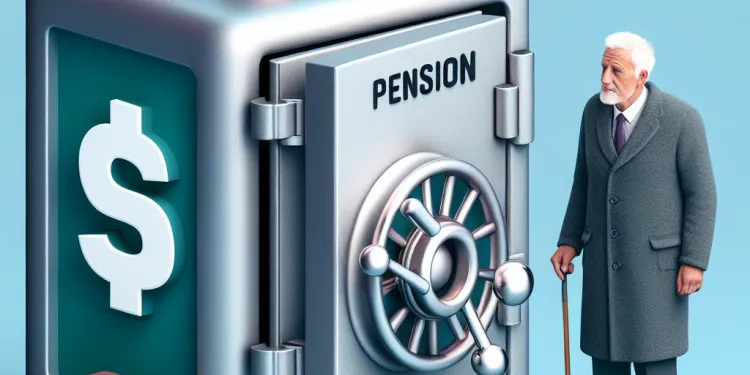
Can pensioners lose all their money if a pension provider fails?
Relevance: 45%
-

Do firefighters have to contribute to their pension schemes?
Relevance: 42%
-

Will pension contribution allowances be affected in 2026?
Relevance: 37%
-

Can my employer provide pension advice?
Relevance: 37%
-

Can I get pension advice directly from pension fund providers?
Relevance: 37%
-

Is the Pension Wise service reliable for pension advice?
Relevance: 35%
-
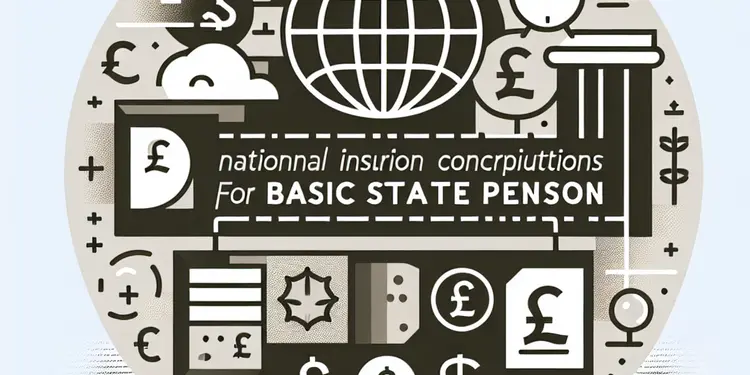
How many National Insurance contributions do I need for the basic State Pension?
Relevance: 35%
-
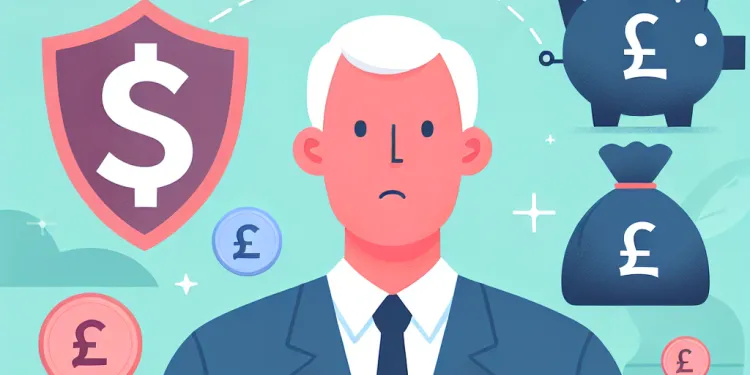
What is the Pension Protection Fund?
Relevance: 34%
-

5 Ways You Can Contribute More To Your NHS Pension!
Relevance: 34%
-

How does insolvency impact pension funds?
Relevance: 32%
-

Pension UK | SIPPs Explained | Who Are The Best Providers
Relevance: 31%
-

Pension rights for Firefighters in the UK
Relevance: 31%
-

What options are available for flexibly accessing firefighter pension benefits?
Relevance: 28%
-
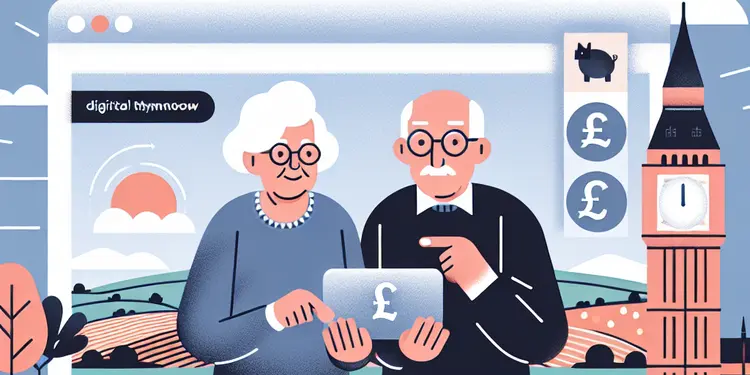
Are there free online resources for pension advice?
Relevance: 26%
-

What is the basic pension in the UK?
Relevance: 25%
-

Will I qualify for the new state pension?
Relevance: 25%
-

Where can I get more information about my pension?
Relevance: 25%
-

Is there a difference between the basic State Pension and the new State Pension?
Relevance: 25%
-

Can I get the basic State Pension if I’m self-employed?
Relevance: 24%
-

Where can I get reliable pensions advice?
Relevance: 24%
-

Do all UK firefighters automatically join a pension scheme?
Relevance: 24%
-
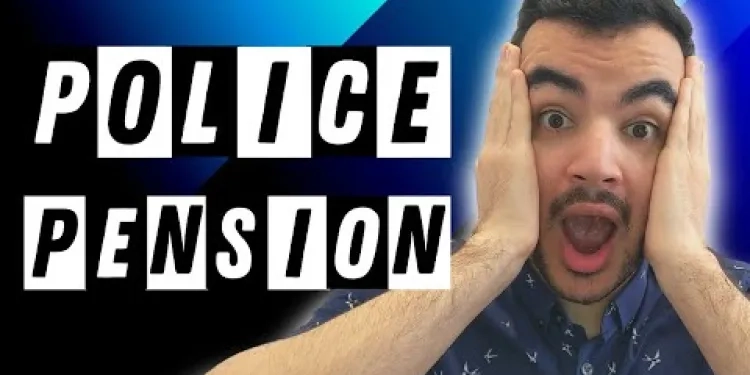
Police Pension Explained
Relevance: 24%
-

Can firefighter pension benefits be divided in a divorce?
Relevance: 24%
-

Who is eligible for the basic State Pension?
Relevance: 24%
-

Are firefighter pension benefits adjusted for inflation?
Relevance: 24%
-

What should I consider when choosing a pension advisor?
Relevance: 24%
-

Is it possible to buy additional pension benefits as a firefighter?
Relevance: 24%
-

Are the pension rights different for firefighters who joined before 2006?
Relevance: 24%
-

What is the role of independent financial advisors in pension planning?
Relevance: 23%
-

How do I claim the basic State Pension?
Relevance: 23%
-

How is binge drinking typically defined?
Relevance: 23%
-

Who is eligible for compensation from the PPF?
Relevance: 23%
-

NHS Pensions | All you need to know
Relevance: 23%
-

Answering NHS Pension Questions | Opting-Out | How to Claim | Moving Abroad etc.
Relevance: 23%
-

How is the pension calculated for firefighter schemes?
Relevance: 23%
Introduction
Defined contribution pensions are a popular way for individuals in the UK to save for retirement. These pensions involve contributions from both employer and employee being invested, and the pension pot grows based on these contributions and any investment returns. However, individuals often wonder what happens if their pension provider goes bust, and how their hard-earned savings are safeguarded.
The Role of the Financial Services Compensation Scheme (FSCS)
The Financial Services Compensation Scheme (FSCS) is a crucial mechanism in the UK designed to protect consumers when financial service firms fail. If a provider administering a defined contribution pension goes bankrupt, the FSCS may offer protection, depending on the circumstances. It's important to note that the FSCS covers specific aspects of pension services. It provides a safety net by compensating individuals up to particular limits, especially in the event of provider insolvency.
Investment Protection
Defined contribution pensions primarily consist of investments, and it's worth understanding how these are protected. If the pension provider's investments are managed by an authorized investment firm that fails, the FSCS can compensate up to £85,000 per person, per firm. This protection extends to investment fund management, ensuring that individuals are protected if the firm managing the funds goes under. However, any losses due to poor investment performance or stock market dips are not covered under the FSCS.
Insurance for Occupational Pensions
For individuals participating in an occupational defined contribution pension scheme, which is often sponsored by the employer, additional protections may be in place. These schemes typically invest employees' contributions into various funds. In the event of a fund manager insolvency, the FSCS may cover up to 100% of the claim for occupational pensions that involve insurance elements, like annuities. It's important to verify whether your specific pension scheme involves any such insurance aspects.
Selecting a Reputable Provider
Choosing a reliable and well-established provider is a prudent step in minimizing the risks associated with provider failure. UK regulatory bodies like the Financial Conduct Authority (FCA) oversee pension providers to ensure they comply with stringent regulations. Checking that your provider is FCA-authorised can add an additional level of security and peace of mind.
Conclusion
While defined contribution pensions offer numerous advantages for retirement savings, understanding the protections available is crucial. The FSCS plays a significant role in safeguarding pensions from provider failures, but individuals should remain informed and proactive about their pension arrangements. By staying vigilant and informed about their provider's financial health and ensuring FSCS coverage, pension savers can protect their future financial security, even if their provider goes bust.
Introduction
A defined contribution pension is a common way for people in the UK to save money for when they stop working. Both you and your employer pay money into this pension, which is then invested. Your pension pot grows over time with these contributions and any returns from investments. People often wonder what happens if their pension company goes out of business and how their savings are kept safe.
The Role of the Financial Services Compensation Scheme (FSCS)
The Financial Services Compensation Scheme (FSCS) helps protect people's money if a financial service company fails. If a company managing your pension goes bankrupt, the FSCS might help, depending on the situation. The FSCS only covers specific parts of pensions. It acts like a safety net by giving money back up to certain limits, especially if the company becomes insolvent.
Investment Protection
Pensions are mostly made up of investments, so it's important to know how these are protected. If the company managing these investments fails, and it is an authorized investment firm, the FSCS can give you up to £85,000 per person, per firm. This protection covers investment management. But remember, if the market goes down or the investments don't do well, the FSCS does not cover these losses.
Insurance for Occupational Pensions
If you have a pension through work (called an occupational pension), there may be extra protection. These pensions usually invest your money in different funds. If a fund manager becomes insolvent, the FSCS might cover up to 100% of the claim if the pension has insurance elements, like annuities. Check if your pension scheme includes these insurance aspects.
Selecting a Reputable Provider
Choosing a trustworthy and well-established pension company helps reduce risks. UK organizations like the Financial Conduct Authority (FCA) make sure pension companies follow strict rules. Make sure your provider is FCA-authorized for extra security and peace of mind.
Conclusion
Defined contribution pensions are great for saving for retirement, but it's important to understand how your savings are protected. The FSCS is key to keeping your pension safe if your provider fails. Stay informed and check your provider's financial health to ensure your pension savings are protected, even if the company goes out of business.
Frequently Asked Questions
What is a defined contribution pension?
A defined contribution pension is a type of retirement plan where contributions are made into an individual account for each participant, often by both the employee and employer, with the retirement benefits based on the account balance accumulated over time.
Are defined contribution pensions protected if the provider goes bust?
Yes, defined contribution pensions are typically protected if the provider goes bust, but the level of protection can vary by country and the specific regulatory framework in place.
What measures are in place to protect defined contribution pensions?
Defined contribution pensions may be protected through various measures such as insurance schemes, regulatory oversight, and requirements for pension providers to segregate and safeguard pension assets.
What happens to my pension if my provider goes bust in the UK?
In the UK, if your pension provider goes bust, your defined contribution pension is generally protected by the Financial Services Compensation Scheme (FSCS), which may cover up to 100% of your pension's value.
Can I lose my pension savings if the provider goes bankrupt?
While the underlying investments in your pension can fluctuate based on market conditions, your pension savings are usually protected from the provider's bankruptcy due to regulatory protections and insurance schemes.
What role does the Pension Protection Fund (PPF) play in pension protection?
The PPF is primarily aimed at defined benefit pensions, not defined contribution pensions. However, regulations ensure defined contribution pension funds are held separately from the provider's assets to safeguard them from insolvency.
Are there specific regulations ensuring the protection of defined contribution pensions?
Yes, most jurisdictions have regulations requiring pension funds to be held separately from the provider's operating funds and ensuring they are managed by trustees or protected by insurance schemes.
What should I do to check if my pension provider is reliable?
You should check if your pension provider is regulated by a reputable financial authority, review their track record, financial stability, and read reviews. Additionally, confirm if they are covered by any compensation schemes.
Is my pension investment safe during financial crises affecting providers?
Pension investments can fluctuate during financial crises due to market conditions, but the structural safeguards should protect the pension assets themselves from the provider's financial issues.
What is the FSCS and how does it protect pensions in the UK?
The FSCS (Financial Services Compensation Scheme) is a UK-based protection scheme that compensates customers if financial services providers fail. It covers pensions up to a certain limit.
How are defined contribution pensions managed?
Defined contribution pensions are typically managed by investment professionals who invest contributions in various assets, complying with regulatory frameworks designed to protect pension assets.
Can providers use my pension savings for their own business purposes?
No, pension savings are held in independent trust accounts, separate from the provider's business accounts, in compliance with regulations designed to prevent misuse of funds.
How does the compensation scheme work if a provider goes bust?
If a provider goes bust, a compensation scheme like the FSCS in the UK can reimburse pension holders up to a certain limit, ensuring their accumulated savings are protected.
What should I do to safeguard my pension savings?
To safeguard your pension savings, ensure your pension provider is regulated, understand the protections in place, regularly review your fund's performance, and diversify your investments if possible.
Are there any differences in protection for private versus workplace defined contribution pensions?
Both private and workplace defined contribution pensions typically enjoy similar levels of protection due to regulations requiring providers to segregate pension assets from their own and through compensation schemes.
What happens to my regular pension contributions if the provider is insolvent?
If a provider is insolvent, your regular contributions are typically safeguarded under protections like trust arrangements, ensuring the funds are not lost due to the provider's financial failings.
Are my pension savings part of the provider's assets?
No, pension savings are kept separate from the provider’s assets and are typically protected from creditors if the provider goes bankrupt, ensuring their security and accessibility for fund members.
What should I consider when choosing a pension provider?
When choosing a pension provider, consider their regulatory status, financial health, reputation, fees, investment options, and the protection schemes they are part of to ensure the safety of your assets.
Is it possible to transfer my pension to another provider?
Yes, most defined contribution pensions allow you to transfer your pension pot to another provider. It's crucial to check for any charges or changes in benefits associated with transferring.
How often should I review my pension arrangements?
It's advisable to review your pension arrangements annually or when significant financial events occur to ensure your investments align with your retirement goals and to reassess the security and performance of your plan.
What is a Defined Contribution Pension?
A defined contribution pension is a plan to save money for when you stop working. You and your boss put money into this plan.
Over time, this money grows. When you are older, you use this money to help pay for things.
Here are some tips to understand it better:
- Ask a grown-up to explain it to you.
- Use pictures or drawings to help.
- Watch videos that explain how pensions work.
A defined contribution pension is a type of retirement plan. In this plan, money is put into a special account just for you. Both you and your boss can put money into this account. When you retire, the money in this account helps pay for things you need. The amount you get depends on how much money is in your account when you retire.
What happens to your pension if the company looking after it goes out of business?
Yes, your pension is usually safe if the company managing it goes out of business. But, how much is protected can be different depending on where you live and the rules there.
How are defined contribution pensions kept safe?
Pension plans need to be protected, so there are rules to keep your money safe. Here are some ways pensions are protected:
- Special rules and laws: The government has laws to make sure pension plans are safe.
- Watchdogs: There are people and organizations that check and make sure pensions are fine.
- Helplines: You can call special phone numbers if you have any questions or problems with your pension.
Remember, if you don't understand, ask someone you trust for help. You can also use pictures or listen to recordings to understand better.
A defined contribution pension is like a special savings pot for your future. There are ways to keep this money safe. Some of these ways include insurance, rules from the government, and making sure the people who take care of your pension keep the money in a separate and safe place.
What if my pension company runs out of money in the UK?
Your pension is money saved for when you stop working.
If your pension company runs out of money, don't worry. You still might get your pension.
There is a group called the Pension Protection Fund. They help people get their pensions if companies have money problems.
If you need help understanding, you can:
- Ask someone you trust to explain it to you.
- Use a tool to read the words out loud.
In the UK, if the company looking after your pension goes out of business, there is a way to help. The Financial Services Compensation Scheme (FSCS) can protect your money. They might cover the full amount of your pension.
Will I lose my pension money if the company goes bust?
If a company that looks after your pension runs out of money, your pension is usually safe. This is because your pension is often kept separate from the company's money.
If you are worried, here are some things you can do:
- Ask someone you trust to help you understand your pension.
- Use simple guides to learn more about pensions.
- Contact a helpline for advice.
Your pension money is kept safe even if the company looking after it goes broke. This is because of special rules and insurance that protect your savings, even when the market goes up and down.
What does the Pension Protection Fund (PPF) do?
The Pension Protection Fund helps protect your pension money if your old company can't pay it. If your company shuts down or can't give you your pension, the PPF steps in to help you.
To understand this more, you can:
- Ask someone you trust to explain it to you.
- Look for easy videos online about the Pension Protection Fund.
The PPF cares for certain types of pensions called "defined benefit pensions." These are not the same as "defined contribution pensions." But don't worry! There are rules that keep your defined contribution pension safe and separate from other money the company has. This way, even if the company gets into money trouble, your pension is protected.
Are there rules to keep defined contribution pensions safe?
Yes, there are rules to make sure your money in a defined contribution pension is protected. These rules help keep your savings safe.
If you need help, you can:
- Ask a grown-up to explain it to you.
- Use a dictionary to understand difficult words.
- Use audiobooks to listen while you read.
Yes, in most places, there are rules that keep pension funds safe. These funds must be kept apart from the company’s money. They are watched over by special people called trustees or are protected by insurance.
How can I check if my pension provider is good?
Check if your pension company is approved by a trusted group. Look at how well they have done before. Make sure they have enough money and see what other people say about them. Also, check if you can get money back if something goes wrong.
Is my pension money safe during money problems?
Sometimes companies that take care of your pension can have money problems. Let's learn what happens then.
- If a company is having money trouble, it doesn't mean you will lose your pension.
- The government has rules to protect your pension money.
- Your pension is usually kept separate from the company's other money.
Here are some things you can do:
- Ask questions if you're worried. It's okay to find out more.
- Talk to someone you trust, like a family member or a money helper person.
- There are people who can give you advice about pensions.
Pension money can go up and down in value during tough times. This happens because of changes in the market. But there are rules in place to make sure your pension is safe, even if the company handling it has money problems.
What is the FSCS and how does it help with pensions in the UK?
The FSCS is a group that keeps your money safe in the UK.
If something goes wrong with a pension company, the FSCS can help you get your money back.
To make reading easier, use tools like a text-to-speech app that reads the text out loud.
You can also ask someone to read along with you.
The FSCS is a safety plan in the UK. It helps people if banks or financial companies have problems. It can give money back for pensions up to a certain amount.
How do we take care of defined contribution pensions?
Defined contribution pensions are a way to save for when you stop working. Here's how they are looked after:
- You save money regularly. Your boss might also add money.
- The money goes into a special account. This is called your pension fund.
- The fund grows over time. It's like planting a seed and watching it grow into a tree.
- When you stop working, you can use the money to live on.
Helpful Tips
- Use bright colors or big pictures to keep track of your savings.
- Ask a trusted adult for help if you're confused.
- Use online tools or apps to see how your savings are growing.
Pensions with defined contributions are handled by experts. These experts are good at making money grow.
They put the money into different things that can make it bigger. They have to follow rules that keep your pension safe.
If you find reading hard, you can ask someone to read with you. You can also use tools like text-to-speech that read the words out loud.
Can companies use my pension money for their own business?
No, companies cannot use your pension money for themselves. Your pension savings are kept safe for you. They are not allowed to spend it on their business.
If you are confused, you can ask for help. You could talk to a family member or a friend. Also, you can use simple language guides or ask someone from the pension company to explain.
Your pension savings are kept safe in a special account. This account is not mixed with the company’s money. There are rules to make sure that your money is used the right way.
What happens if a company runs out of money?
If a company can’t pay back the money it owes, there is a plan to help. This plan is called a compensation scheme. It gives people some of their money back.
The money you get back might not be the same as what you lost, but it helps.
You can also ask for help from a family member, friend, or helper. They can explain this to you or help you with the process.
If the company that looks after your pension money runs out of money, there is a way to get help in the UK. It is called the FSCS. This group can give you back some of your savings to keep them safe.
How can I keep my pension money safe?
To keep your pension money safe, make sure your pension company follows the rules. Know how your money is protected. Check how your pension is doing often. If you can, spread your money across different places.
Is there a difference in safety between private and workplace money put away for the future?
Sometimes, people save money for when they stop working. They can do this by themselves (private) or through their job (workplace). It's important to know if both ways of saving are safe.
Here are some tips to help understand:
- Ask someone you trust to help explain things to you.
- Use pictures or drawings to see how savings grow.
- Break information into small, simple parts to make it easier to understand.
Private and workplace pensions are kept safe by rules. These rules make sure companies keep your pension money separate from their own. If something goes wrong, there are plans to help protect your money.
What happens to my pension money if the company runs out of money?
If the company that looks after your pension goes out of business, it means they have no money left.
Here's what you need to know:
- Your pension money is usually kept safe and separate from the company's money.
- If something goes wrong, there are rules to protect your pension.
- You might not lose your money, but it's good to check what's being done to keep it safe.
Here are some helpful things you can do:
- Talk to someone about your pension if you're worried.
- Read any letters or papers you get about your pension.
- Use a tool called a 'pension calculator' to understand how much money you could have when you stop working.
If the company you give your money to goes broke, don't worry. Your money is usually kept safe in a special way so it isn't lost.
Is my pension money mixed with the company's money?
Your pension money is kept safe and separate. It is not mixed with the company's money. This means even if something happens to the company, your pension money is still safe.
Tools like pictures and videos can help you understand more about pensions. You can also ask someone you trust to help explain.
No, your pension savings are safe. They are kept away from the pension company’s money. If the pension company runs out of money, people they owe cannot take your savings. Your savings are still safe and you can still get them when you need.
What should I think about when picking a pension company?
Here are some things to help you choose:
- Know What a Pension Is: A pension is money saved for when you stop working.
- Check the Company's Reputation: Look for companies people trust. Ask people you know or read reviews online.
- Understand the Fees: Find out how much money the company takes to manage your pension.
- Check the Support: See if the company can help you when you have questions.
- Use Tools for Help: Try online calculators to see how much money you might save.
- Ask for Help: Talk to a trusted adult or advisor if you need help understanding.
Remember, it's okay to ask questions and take your time to make the best choice for you!
When you pick a company to help with your pension, think about these things:
- Check if they have the right approvals and follow rules.
- Find out if they have strong money safety.
- See if people say good things about them.
- Look at how much they charge.
- See what ways they can invest your money.
- Check if they have protection in case things go wrong.
These steps help keep your money safe.
Can I move my pension to a different company?
Yes, you can move your pension to another company. This means taking your savings from one place and putting it in another.
To help, you can:
- Ask someone you trust to explain things.
- Use simple online tools to understand your choices.
- Talk to a helper at the pension company.
Yes, you can usually move your pension money to a different company. But, it's important to check for any fees or changes in what you'll get by moving it.
When should I check my pension plan?
You should check your pension plan regularly. Here are some tips:
- Look at it once a year.
- Check if anything in your life has changed, like a new job.
- If you don't understand something, ask a family member or friend to help.
- You can also use apps or websites to learn more about pensions.
It's a good idea to check your pension every year. You should also check it if something big happens with your money. This helps make sure your money is safe and growing for when you stop working.
Here are some tools to help you check your pension:
- A simple calculator can help you see how much money you might have when you retire.
- Ask someone you trust to look at your pension with you.
- If you need help, talk to a person who knows a lot about pensions.
Useful Links
This website offers general information and is not a substitute for professional advice.
Always seek guidance from qualified professionals.
If you have any medical concerns or need urgent help, contact a healthcare professional or emergency services immediately.
Some of this content was generated with AI assistance. We’ve done our best to keep it accurate, helpful, and human-friendly.
- Ergsy carfully checks the information in the videos we provide here.
- Videos shown by Youtube after a video has completed, have NOT been reviewed by ERGSY.
- To view, click the arrow in centre of video.
- Most of the videos you find here will have subtitles and/or closed captions available.
- You may need to turn these on, and choose your preferred language.
- Go to the video you'd like to watch.
- If closed captions (CC) are available, settings will be visible on the bottom right of the video player.
- To turn on Captions, click settings .
- To turn off Captions, click settings again.
More Items From Ergsy search
-

Are defined contribution pensions protected if the provider goes bust?
Relevance: 100%
-

What Happens When Pensions Go Bust! | Pension System Collapse UK
Relevance: 64%
-

What is a defined contribution pension scheme?
Relevance: 64%
-

Why do pension funds go bust?
Relevance: 58%
-

What is a defined benefit pension scheme?
Relevance: 51%
-

Can pensioners lose all their money if a pension provider fails?
Relevance: 45%
-

Do firefighters have to contribute to their pension schemes?
Relevance: 42%
-

Will pension contribution allowances be affected in 2026?
Relevance: 37%
-

Can my employer provide pension advice?
Relevance: 37%
-

Can I get pension advice directly from pension fund providers?
Relevance: 37%
-

Is the Pension Wise service reliable for pension advice?
Relevance: 35%
-

How many National Insurance contributions do I need for the basic State Pension?
Relevance: 35%
-

What is the Pension Protection Fund?
Relevance: 34%
-

5 Ways You Can Contribute More To Your NHS Pension!
Relevance: 34%
-

How does insolvency impact pension funds?
Relevance: 32%
-

Pension UK | SIPPs Explained | Who Are The Best Providers
Relevance: 31%
-

Pension rights for Firefighters in the UK
Relevance: 31%
-

What options are available for flexibly accessing firefighter pension benefits?
Relevance: 28%
-

Are there free online resources for pension advice?
Relevance: 26%
-

What is the basic pension in the UK?
Relevance: 25%
-

Will I qualify for the new state pension?
Relevance: 25%
-

Where can I get more information about my pension?
Relevance: 25%
-

Is there a difference between the basic State Pension and the new State Pension?
Relevance: 25%
-

Can I get the basic State Pension if I’m self-employed?
Relevance: 24%
-

Where can I get reliable pensions advice?
Relevance: 24%
-

Do all UK firefighters automatically join a pension scheme?
Relevance: 24%
-

Police Pension Explained
Relevance: 24%
-

Can firefighter pension benefits be divided in a divorce?
Relevance: 24%
-

Who is eligible for the basic State Pension?
Relevance: 24%
-

Are firefighter pension benefits adjusted for inflation?
Relevance: 24%
-

What should I consider when choosing a pension advisor?
Relevance: 24%
-

Is it possible to buy additional pension benefits as a firefighter?
Relevance: 24%
-

Are the pension rights different for firefighters who joined before 2006?
Relevance: 24%
-

What is the role of independent financial advisors in pension planning?
Relevance: 23%
-

How do I claim the basic State Pension?
Relevance: 23%
-

How is binge drinking typically defined?
Relevance: 23%
-

Who is eligible for compensation from the PPF?
Relevance: 23%
-

NHS Pensions | All you need to know
Relevance: 23%
-

Answering NHS Pension Questions | Opting-Out | How to Claim | Moving Abroad etc.
Relevance: 23%
-

How is the pension calculated for firefighter schemes?
Relevance: 23%


